The Cinémathèque suisse houses one of the world's largest collections dedicated to the seventh art and carries out its conservation and development activities on several sites, including two research and archiving centres. The institution collects and preserves the majority of its collections in a state-of-the-art facility, the Penthaz centre, which was inaugurated in 2019. The Zurich centre is the Cinémathèque suisse’s outlet for the German-speaking part of Switzerland, preserving and studying its mainly German-speaking archives.
The Penthaz and Zurich research and archiving centres are accessible to students, researchers, film and archive professionals, schools and the general public on Open Days.
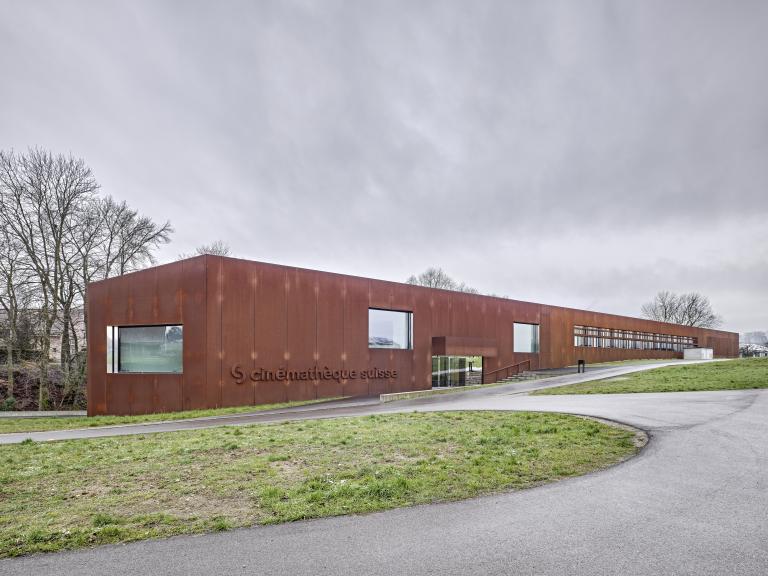
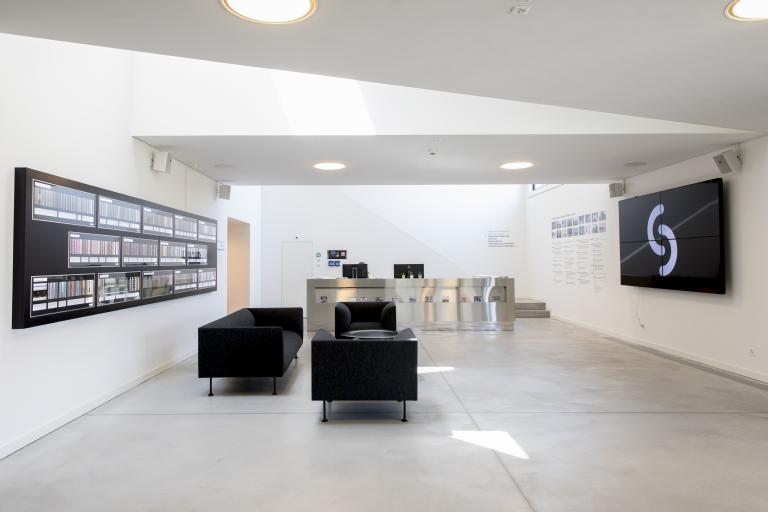


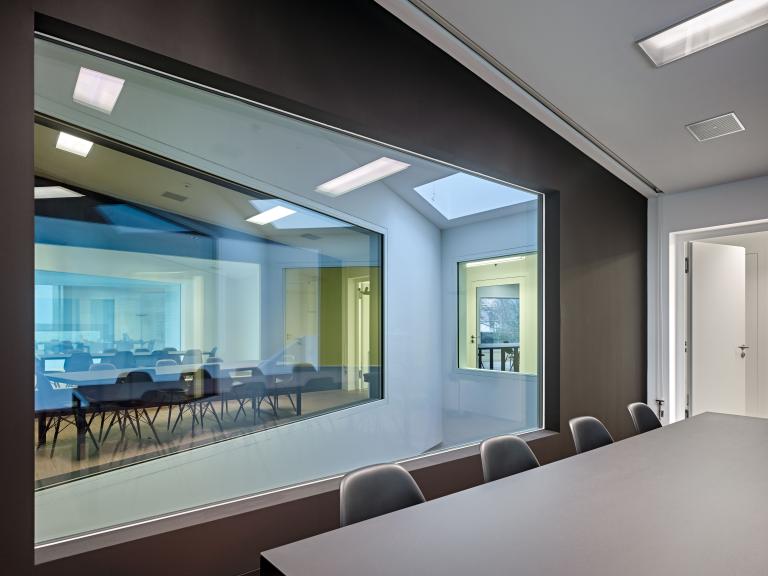
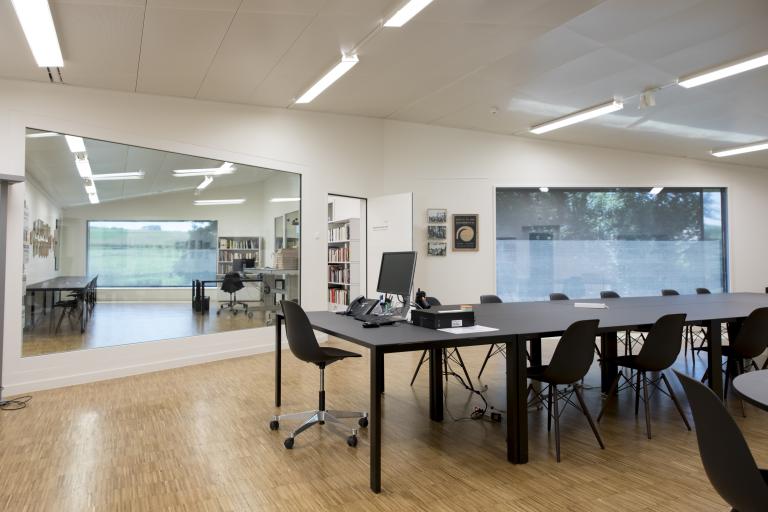
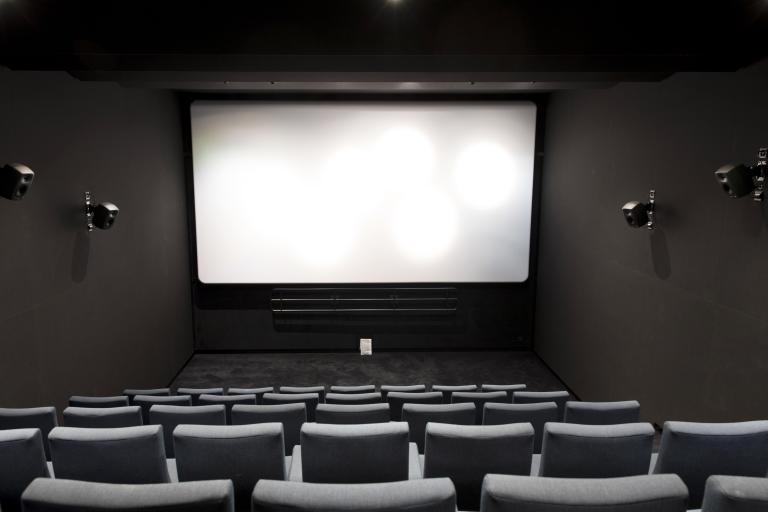
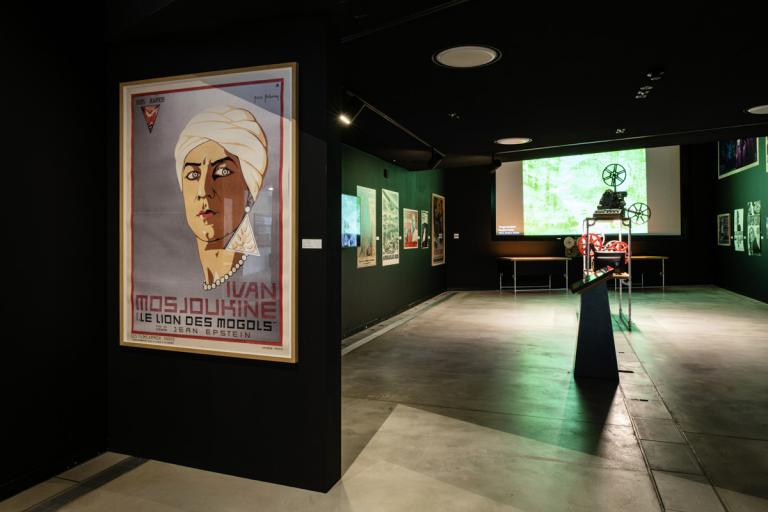



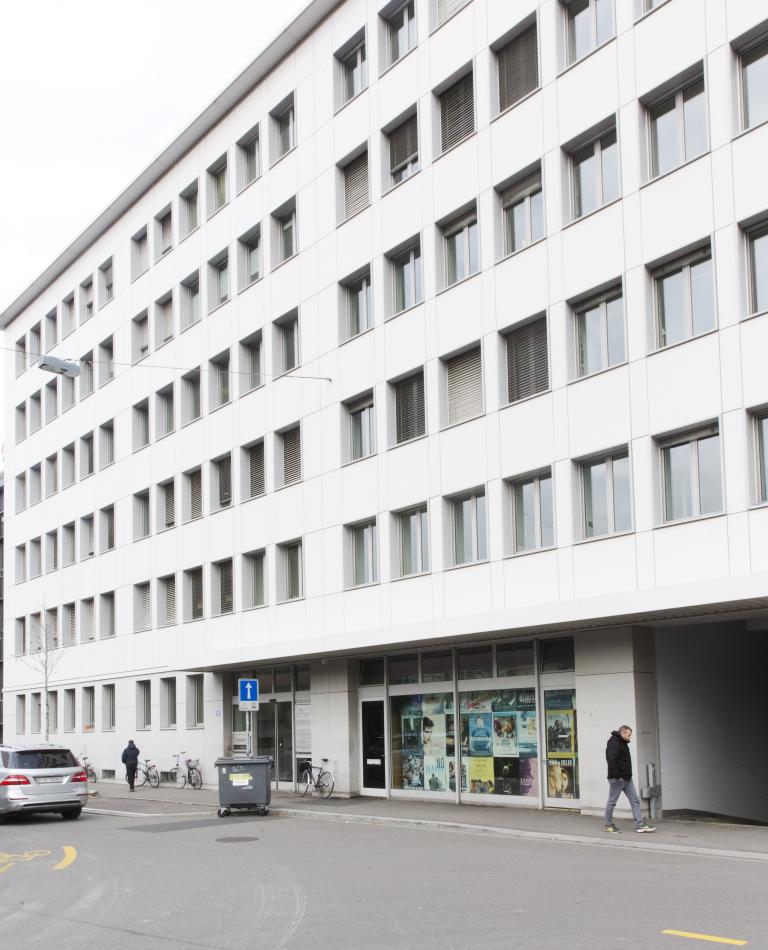
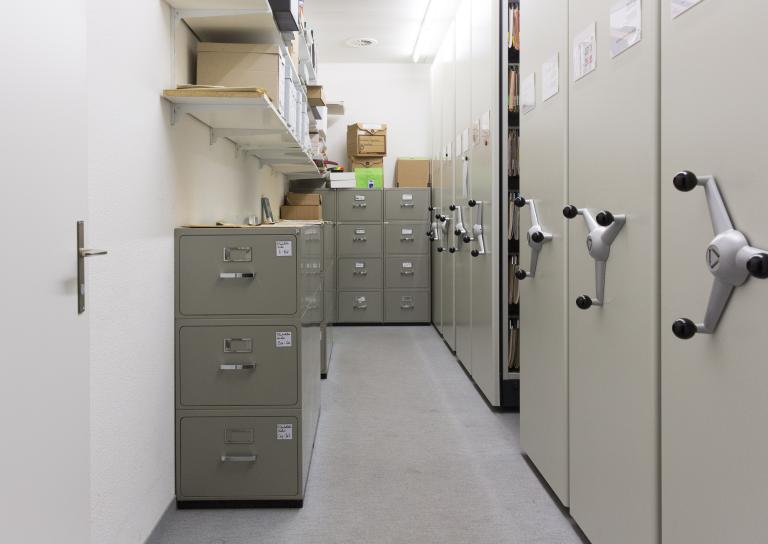
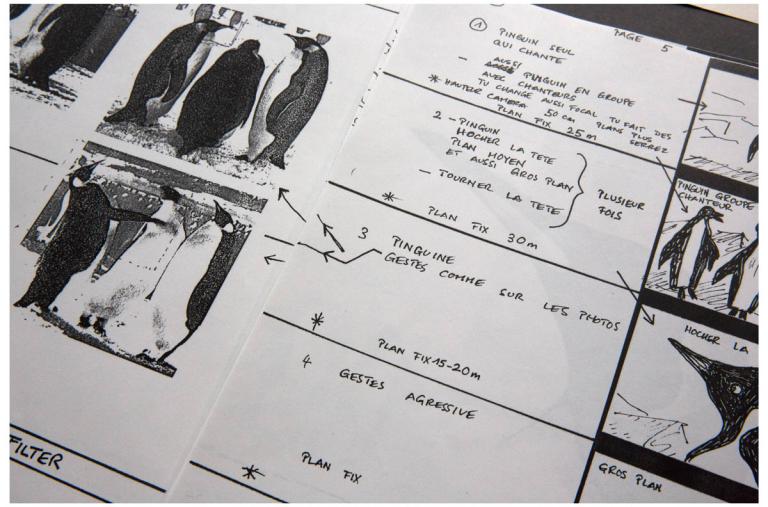
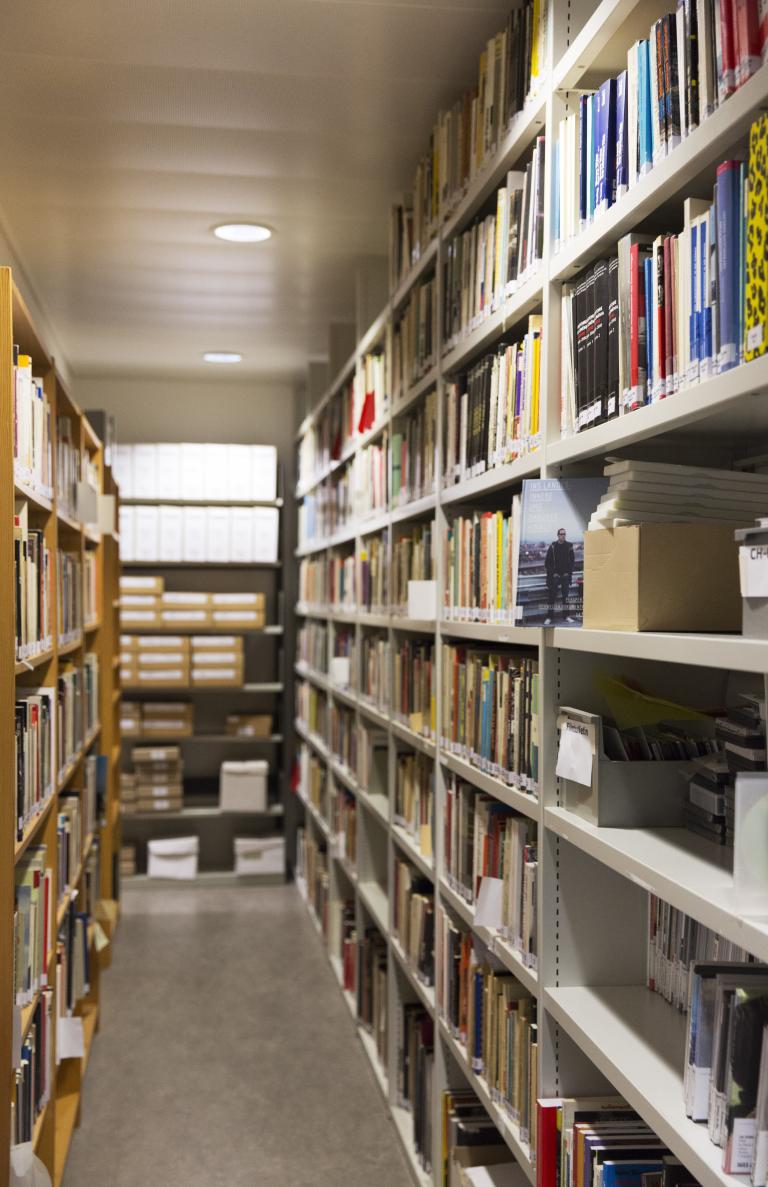
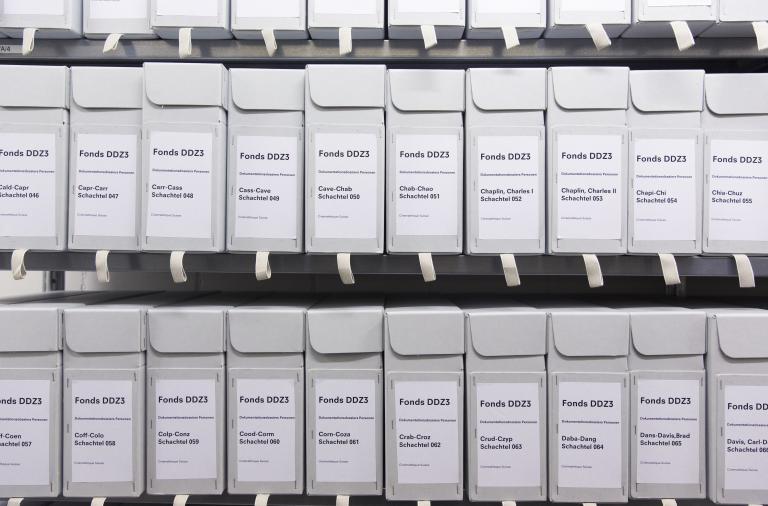
Number of images 1 / 16
Main facade of the Research and Archiving Centre in Penthaz © OFCL / Roger Frei
Penthaz
In 1988, the Cinémathèque suisse acquired former bookbinding workshops in Penthaz in the canton of Vaud, in order to bring together its collections, which until then had been stored in a dozen different warehouses in and around Lausanne. These premises, which were refurbished and inaugurated in 1992, became the institution's first centralised archiving centre and a centre of expertise for the preservation of collections. To keep up with the rapid and significant development of the Cinémathèque suisse, the Swiss Confederation bought the existing building in 1998, and in 2005 adopted a decree providing for the construction of a new research and archiving centre in Penthaz. Thanks to a development credit voted through by Parliament, construction works began in 2010, and the building was officially inaugurated in September 2019.
Designed by the architectural firm EM2N, this space comprises two buildings connected by an underground passage. Industrial in inspiration, its architecture and materials make multiple references to cinema and archives. Among its 140,000 square feet of surface area, the Penthaz Research and Archiving Centre holds rooms dedicated to the preservation of collections, built underground, sheltered from natural light and offering optimal conservation temperatures. It also includes a laboratory for the digitisation of its film heritage, premises dedicated to the restoration and cataloguing of documents, a museum area, a projection room, a library/media library, as well as consultation, viewing and working areas open to students, researchers, and film and archive professionals. In all, no less than 167,000 feet of physical shelving and 10 petabytes of digital storage, representing the memory of Swiss and international cinema from its origins.
Zurich
The Zurich Research and Archive Centre, which has been a German-language branch of Cinémathèque suisse since 2002, has its roots in work undertaken by the Church in the early 1940s to collect magazines, books, festival catalogues, film programmes, photographs, press files, articles and leaflets. These documents were used in particular to provide content for the Christian film magazines Filmberater and Zoom : Zeitschrift für Film. These activities led to the creation of ZOOM Dokumentation für den Film, which continued to collect documents and make them available to a wide audience. The integration of the documentation centre into Cinémathèque suisse has enabled it to expand its tasks. These 60,000 or so documentary files on national and international films have formed the core of the collection to this day and bear witness to the promotion and reception of films in Switzerland in the 20th century. The archives of the filmmakers Alexander J. Seiler, Peter Liechti and Gertrud Pinkus, those of the Praesens-Film AG company and other important paper holdings on the German-speaking film industry (production, distribution, cinemas, film societies) are also included.
One of the strengths of the Zurich branch is the provision of its collections for digitisation and publication projects and events. It collaborates with several regional cultural institutions as well as with the film studies seminar of the University of Zurich. The Zurich Research and Archive Centre is now part of Cinémathèque suisse’s Non-Film Department.

















